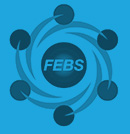
Programme features
The programme focuses on recent developments relating to all Transglutaminase enzymes in cardiovascular diseases, neurological diseases, cancer and signaling disorders, celiac disease and inflammation, fibrosis and tissue remodeling disorders. Additionally, consideration will be given to emerging diseases associated with this class of enzymes, and new methods for their investigation. An introductory plenary session delivered by the organising committee on the first day will focus on the clinical relevance of Transglutaminases.
These topics will form 7 separate sessions, each chaired by an experienced investigator as discussion leader, twinned with a selected ECR:
These topics will form 7 separate sessions, each chaired by an experienced investigator as discussion leader, twinned with a selected ECR:
- Clinical relevance of transglutaminases
- Emerging Diseases
- Cardiovascular Diseases
- Fibrosis
- Celiac Disease and Inflammation
- Cancer & Signalling Disorders
- Neurological Diseases
Over 20 invited speakers (a blend of senior and early carrer) will present their work in 30 min-periods (20 min talk and 10 min discussion).
Additionally, there will be a total of 10 short talks (10 min talk and 5 min discussion) reserved to young researchers in the programme (based on scientific abstract) and up to 80 poster presentations (including flash talks). A 200 € prize sponsored by FEBS Open Bio will be awarded to the best poster.
Additionally, there will be a total of 10 short talks (10 min talk and 5 min discussion) reserved to young researchers in the programme (based on scientific abstract) and up to 80 poster presentations (including flash talks). A 200 € prize sponsored by FEBS Open Bio will be awarded to the best poster.
Training activities will be aimed at ECR promotion, networking and career development:
- NETWORKING Lunch: young scientists will sit at tables of senior investigators in their relevant area for informal meetings on the first day.
- CAREER SKILLS: how to become an independent researcher
- CAREER MOVE: industry versus academia
- DISCUSSION AROUND the TABLE: where is Transglutaminase biology going
- "SAND-PIT on funding applications
Social activities will include welcome and farewell parties, “net-walking” coffee breaks, a mile walk to a local winery and restaurant dinners.





